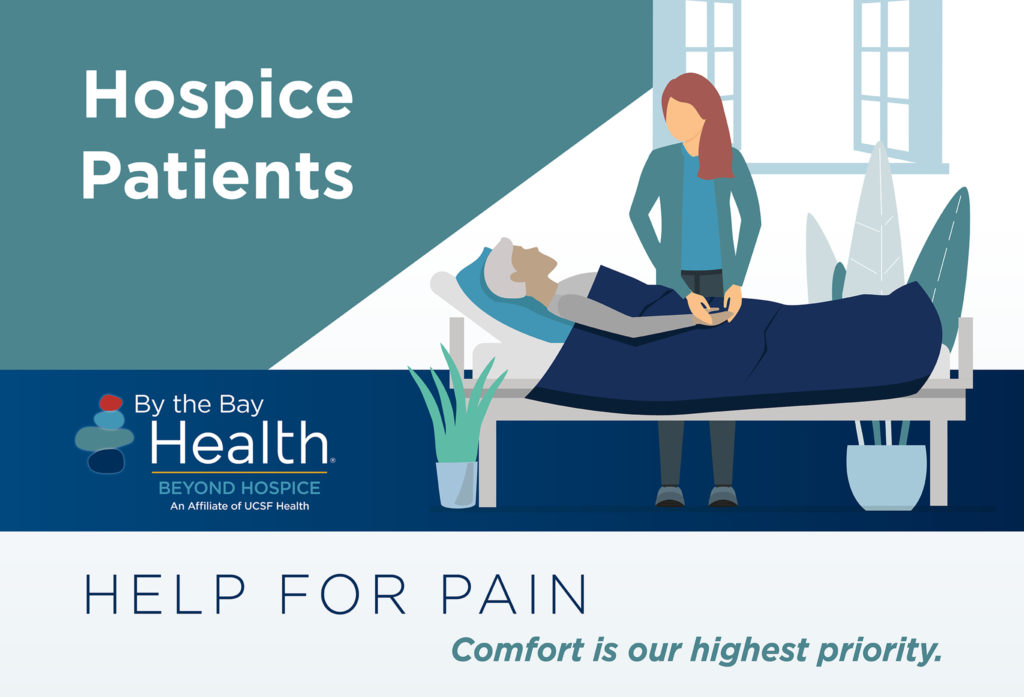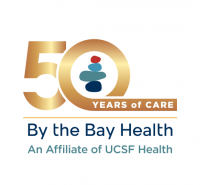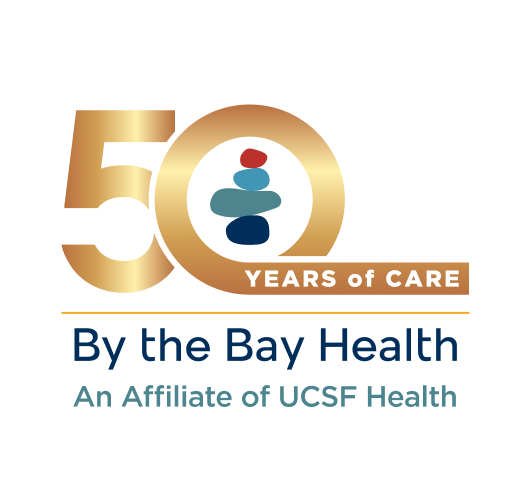 Pain is an uncomfortable physical or emotional feeling caused by an injury or medical condition, or by spiritual, social, or emotional experiences that are as real and important as physical distress.
Pain is an uncomfortable physical or emotional feeling caused by an injury or medical condition, or by spiritual, social, or emotional experiences that are as real and important as physical distress.
Comfort is our highest priority. Your care team will ask about pain at every visit, to learn the amount, location, and type of pain, what caused the discomfort, and what’s working, or not working, to address it.
Signs
Pain is best confirmed by the person experiencing it. There are also signs that can help others know if pain may be present:
- Grimacing, frowning, wincing, or wrinkling brow
- Restlessness, fidgeting or pacing
- Changes in mood, behavior, sleeping or eating
- Crying, moaning or groaning
- Difficulty concentrating
- Rubbing or protecting the uncomfortable area
- Withdrawal from loved ones
Caring for Pain Without Medicine
- Placing a warm or cold compress on the painful area
- Distractions like TV, movies, music, games or talking with loved ones
- Rose and lavender aromatherapy
- Gentle massage
- Regular rest
- Guided imagery or visualization
- Frequent changes in position
Caring for Pain With Medicine
Tylenol and Advil are often used to relieve pain. Prescription medicine may also be needed.
- Always follow Care Team instructions
- Don’t wait until pain becomes intense to use medicine
- For constant pain, some medicines need to be taken regularly to keep a steady amount in the bloodstream
- Take “as needed” medicine 30–45 minutes before activities that usually cause pain
- Tell your Care Team about all medicines taken, including herbs and over-the-counter remedies
Opioids, like morphine, are used safely and effectively in hospice care to treat pain and trouble breathing. The benefits of morphine, hydrocodone (Norco), oxycodone, fentanyl, and hydromorphone (Dilaudid) include:
- Well-managed pain
- Improved sleep
- Increased energy and activity
- Increased ability to socialize with loved ones
For comfort, opioids are paired with bowel medicines to reduce constipation. Always follow your nurse’s instructions for taking them, even when bowel movements seem normal.
Addressing Common Concerns about Opioids
- When used as instructed, opioid addiction is very rare.
- Sleepiness and nausea from pain medicines usually stops after a few days.
- Opioids taken as prescribed will not hasten death. They manage symptoms, making each day as comfortable as possible.
- Opioids can be used for a long time. Increasing the dose if pain worsens is normal.
Side Effects & Safety
It is extremely important to use pain medicines as directed. In addition to constipation, side effects of opioids may include nausea, itchiness, dizziness, drowsiness, or dry mouth.
- Never change the prescribed dose without speaking to a nurse or healthcare provider.
- Keep opioids in their original package, away from children and ideally in a locked container, and limit access to people who have been trained by your Care Team.
- Your nurse will provide a special kit so you can safely discard unused or expired medicines. Contact your pharmacy, or police or fire department to learn where to find a medicine disposal site.
- Avoid driving and using large equipment while taking opioids.
It’s best to treat pain right away. Call your By the Bay Health care team immediately if pain medicines do not work or if new or worrying symptoms arise.

